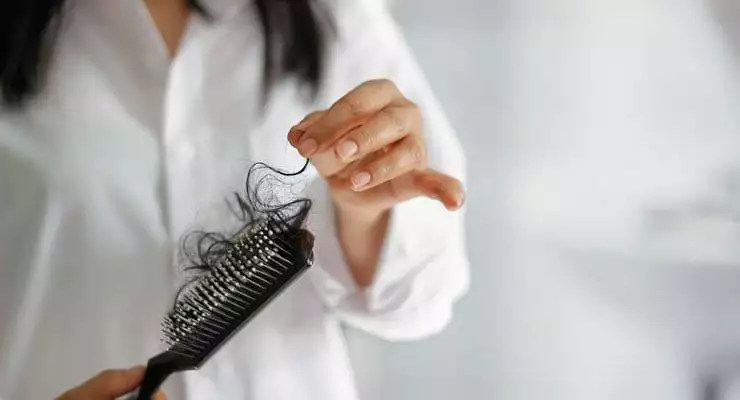Miscarriages are difficult enough to endure without having to worry about hair loss as well. It is not uncommon to lose hair after a miscarriage, according to the American Pregnancy Association. Hormone levels in the body rise during pregnancy. The higher levels of estrogen in your body slow the normal loss of hair. This results in thicker, more luxurious hair. Once hormone levels return to normal, such as after a miscarriage, the hair that was “on hold” suddenly falls out, returning your hair thickness to normal levels.
Causes
Noticeable hair loss after a miscarriage is caused when a large amount of hair follicles suddenly switch from the “growth” stage to the “resting” stage, according to Follicle.com. This is triggered by the abrupt shift in hormone levels, particularly estrogen, that occurs when a pregnancy ends.
Time Frame
The timing of hair loss depends in part on your hormone levels. The balance of hormones in your body can take weeks to stabilize if the pregnancy was advanced. This means that hair loss is sometimes not noticed until months after the miscarriage. In addition, the resting phase of the hair cycle usually takes about three months, after which the hair begins to fall out. So, on average, significant hair loss is usually not noticed until at least three months after the miscarriage occurred.
Symptoms
Many women notice hair loss when bathing or taking a shower. Others notice a lot more hairs than usual wrapped around the bristles of their hairbrushes. Still others notice it when they run their fingers through their hair. However it occurs, the primary symptom of hair loss after miscarriage is a larger-than-usual amount of hair coming off the head, all over the head. This type of hair loss is not limited to one part of the head — you won’t be developing any unsightly bald spots, thank goodness — but it is, rather, an overall reduction in the thickness of the hair.
Treatment
There is no way to prevent hair loss after a miscarriage if you are one of the women who are prone to it. Only 40 to 50 percent of women experience it, according to the American Pregnancy Association. Still, there are ways to slow the loss. Be gentle to your hair. Do not yank it into a pony tail or brush it harshly. Use a mild, gentle shampoo and do not wash your hair every day. Use cool settings if you are going to style your hair, and eat a diet rich in fruits and vegetables, which nourish the hair follicles and encourage hair growth.
Considerations
Other things besides a shift in hormones cause sudden and temporary hair loss. One of those things is sudden emotional stress, according to Follicle.com, and a miscarriage certainly qualifies as such. The sadness of a pregnancy loss can worsen the symptoms of hair loss. Give yourself plenty of time to mourn the loss of your baby, and surround yourself with the people you love.





